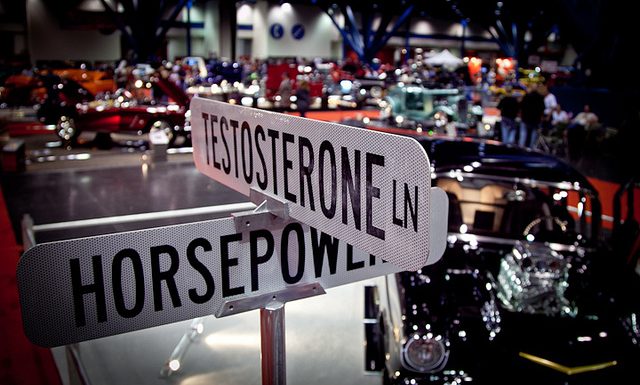Age leading to a reduction in hormonal activity is more often associated with women than men. However, just as women undergo the menopause, men may undergo what is known as the andropause. As both men and women need testosterone for a healthy life, both may benefit from Testosterone Replacement Therapy, or TRT, if their testosterone levels drop [1].
What is Testosterone?
Testosterone is the male growth hormone and is responsible for the development of the male sexual organs. In addition, testosterone contributes to other characteristics that are often associated with masculinity, including facial hair, a deeper voice and larger muscles.
Men tend to have higher testosterone levels than women. The primary sex hormone in women is oestrogen. Women do, however, produce small amounts of testosterone. As with men, it contributes to important bodily functions such as body mass, bone density, energy, libido and mood.
Causes of Low Testosterone
Menopause is the name given to stage at which the female body reduces the amount of sex hormones it produces, generally when a woman reaches her 40s or 50s. This can lead to a variety of symptoms, most notably the cessation of periods and an inability to get pregnant. Oestrogen is the most prominent hormone lost, but testosterone levels can lower as well.
Sometimes known as the male menopause, the andropause is a comparable condition that some men experience as they age. Unlike the menopause, the andropause is not caused by a sudden loss of hormones. Reduction in male testosterone production is a gradual process that may take place over many years.
Hypogonadism is the technical term for when few or even no hormones are produced by the testes. This condition can be present from birth, but there is also a late-onset form. It can be treated by TRT.
Symptoms of Low Testosterone
A deficit in testosterone can lead to a range of negative side effects in men that is sometimes referred to as the male menopause. These include a loss in bone density and decreased muscle mass, alongside increased body fat. Fatigue, insomnia and disturbed sleep are common, as is a reduced libido. Low testosterone can affect your mood by causing irritability, depression and anxiety. It may also cause problems with concentration. Men may experience erectile dysfunction and a lack of facial hair.
What is TRT?
Testosterone replacement therapy is a popular treatment for low testosterone levels. You will need to discuss your condition with your GP. They will want to rule out other potential causes of your symptoms, such as stress. If they decide low testosterone levels are the most likely cause, they will probably order a blood test. You may then be referred to an endocrinologist who can prescribe you TRT. The process of having low testosterone diagnosed and treated can be lengthy, so long waits are possible. Not all GPs are well informed about the symptoms of low testosterone.
TRT can be offered in a variety of forms. These include patches, implants, injections, tablets, gels and creams. Different forms come with different pros and cons. Women may take TRT alongside HRT when managing menopausal symptoms. It should provide the body with testosterone that is identical to that which the body would produce naturally. If successful, testosterone levels will return to normal, which in turn, will alleviate the symptoms caused by low testosterone. Regular blood tests will be able to monitor your changing hormone levels, including testosterone and estrogen, to make sure they are correctly balanced.
As testosterone is a hormone naturally produced by the body, TRT should be a minimal risk procedure. Mild side effects may include acne, fluid retention, oily skin, changes in hair growth, enlarged breasts, sleep disturbances and mood changes such as irritability. Injections, in particular, may cause some soreness at the injection site. The majority of medical research has concluded that TRT is a safe and effective treatment for low testosterone levels.
Testosterone is a vital hormone and TRT is a safe and effective way to ensure it remains at appropriate levels in men. With a variety of forms of TRT available, you should be able to find the right one for you after consultation with a specialist.

Leave a Reply